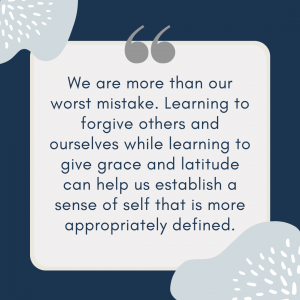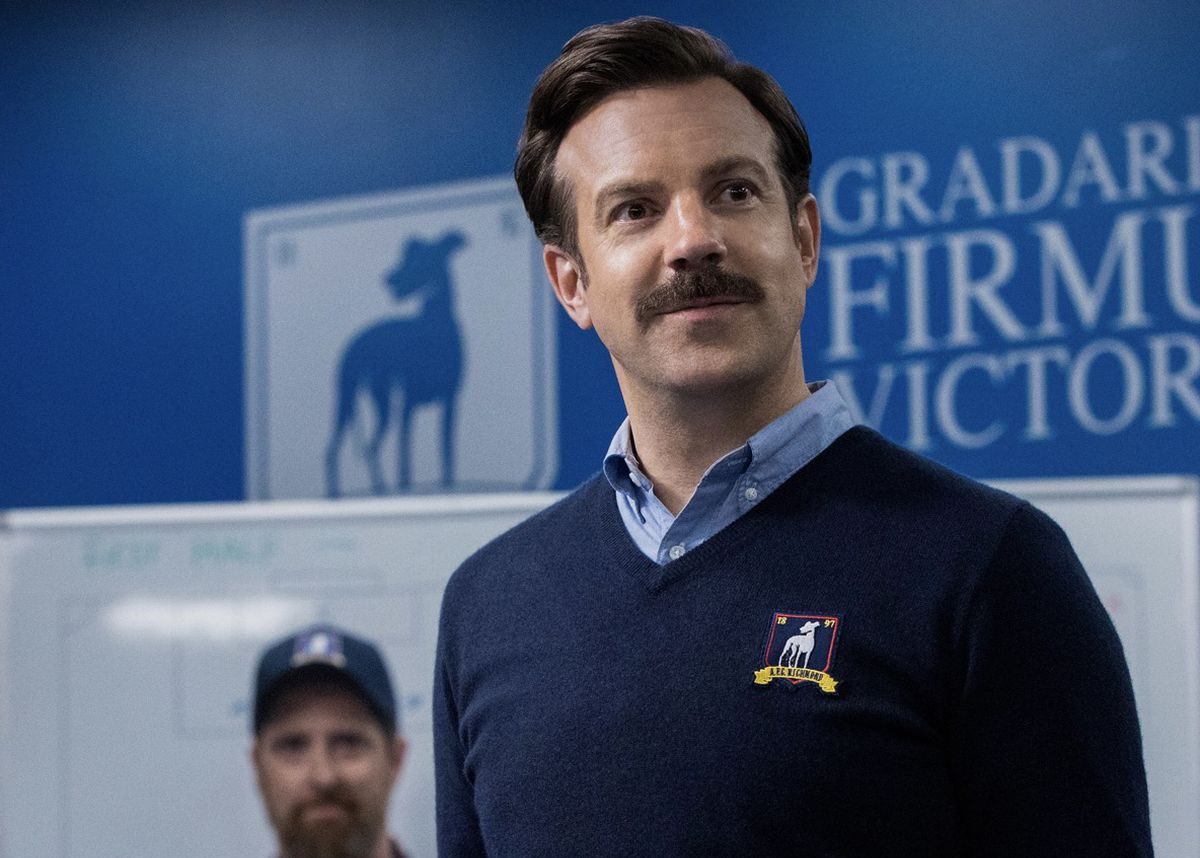Have you seen Ted Lasso? If not, stop what you’re doing and go watch it.
I’m serious. The show is just that good. Not only is it full of joy and hope, which I think we all could use a little bit more of right now, but it also shows leadership with kindness in a way that actually works. It’s a poignant comedy about an American college football coach who goes to England to coach a premier football (soccer) team.
I view the world through leadership. And I think of leadership as the process of moving people and processes toward their fullest capacity and potential. This is a show full of leadership lessons, many of which we all need to adopt more readily.
Vulnerability works
Exposing your own fragility is uncommon in leadership practice, but Ted Lasso owns and embraces his, and is all the better for it. He acknowledges his not-knowing and is willing to be a learner. He comes into his coaching job curious, wanting to connect with his players in an authentic way, getting to know them as men, not just athletes.
Dropping your ego and becoming a learner is a vulnerable act, especially in leadership, when people expect leaders to be commanding and full of answers. We are often pulled away from vulnerability because it’s seen as weakness, even though it’s quite the opposite. The characters face their own vulnerability within their role as professional athletes. And the thing is…none of them can escape it. So they embrace vulnerability and find emotional freedom and genuine connection as a result.
Ask yourself:
- Would your colleagues and direct reports say you are comfortable being vulnerable?
- Does your team culture embrace learning and curiosity?
- How about all the parents out there? Do you demonstrate vulnerability in front of your kids?
- How often do you show them a curious spirit?
- Modeling is the best teacher, so let’s start showing our kids we can lean into more than a command-style approach.
Kindness matters. A lot!
You immediately see that Ted Lasso is an incredibly kind man, and he brings that kindness with him in everything that he does. What’s probably more interesting is how people are so surprised at his kindness. It’s a sad reflection on leadership that people don’t expect their leaders to be kind.
When kindness is accompanied by optimism and moved forward by purpose and passion, you get a combination that yields results. And here’s the thing about kindness- not only does it elevate others, but it also elevates the one being kind. No one ever ended the day being frustrated about how kind they were. What’s more. People relax and find their flow amidst kindness. It’s easy to push back against anger but not so easy to resist kindness. Kindness creates an environment for good moods and connection. Kindness lowers stress and lessens our tendency to be reactive. It improves self-esteem and group morale. Kindness is a critical leadership quality.
Ask yourself:
- Does your leadership ‘style’ include being kind?
- Do you go out of your way to demonstrate small acts of kindness?
- When you are faced with the choice of how to act, do you choose kind?
Don’t be afraid to make the unpopular decision
Leadership is about surfacing the hard truths and moving past the things that are getting in our way. This often requires pushing people beyond their comfort zone and making decisions that go against the majority.
Ted makes a big decision that surprises the team and upsets the fans. He knows it’s the right decision because the choice aligns with his values and the values he is trying to instill in the team. Leaders are responsible for creating and maintaining culture, and often, it’s following through with the most difficult decisions that keep us in alignment.
Sometimes the hardest decision is to be honest with yourself and those around you. It might be to say no when you want to say yes. It could be standing up for what you know is right when everyone else is going along with the norm.
I’ve heard many times that leadership is a lonely place. And it’s true. The higher you go, the lonelier you are, and often, it’s making those tough decisions that feels the loneliest of all. But if you’ve followed the first two lessons, you’ll have enough support around you to get through.
Ask yourself:
- What difficult decision am I faced with right now?
- Do I have the strength and confidence in my leadership to make hard choices?
- Am I willing to stand alone and do what feels right, even if it isolates me from the crowd?
Accountability is critical
Ted Lasso and the other characters take ownership of themselves. They hold themselves accountable, aren’t afraid to apologize, and are willing to admit their mistakes. When Ted lashes out at the equipment manager one evening, he apologizes the next morning, telling him ‘you didn’t deserve that.’ In another instance, when a woman asks her apologetic boyfriend, ‘do you know what you are apologizing for?’ she then tells him ‘accountability matters.’ The characters are human and make mistakes, sometimes big ones. They hurt each other. But they own their mistakes and offer apologies… the kind that feels real and meaningful.
Accountability is owning your actions and acknowledging the impact they have. Accountability doesn’t require us to be perfect; it’s quite the opposite. In fact, with accountability, people can live out their flaws (which we all have) because others know we will acknowledge any potential consequences or results of those actions. There is an implicit element to accountability that people are trying to be better. Teams are more connected and leaders build more trust.
Ask yourself:
- Do you take responsibility for the things you do and the impact of your actions?
- How often do you offer a genuine apology when you cause hurt or harm?
- Do you show accountability in all instances? With your direct reports? Your kids? Your spouse?

We aren’t defined by our worst mistakes
We all F-up. Sometimes really badly. But those actions don’t define who we are.
So many of us use the worst parts of ourselves to draw conclusions and create false narratives about ourselves and others. We spend years in shame and guilt, trying to work through our own inner critic. It’s funny how we don’t do this with others. We have so much more latitude with our friends, helping them work through mistakes and learn from them, while we judge ourselves harshly.
Forgiveness is a skill and we need to practice it more.
In the show one character has to admit to a series of cruel and mean choices, hurting and using people for her own gain. Ted’s response when the person comes clean and apologizes to him: “I forgive you.” He shares how the hardest times in our lives “make us do crazy things” and those things don’t make us who we are.
So many of the characters are faced with their shadow side. These are the uglier parts of who we are, and they certainly don’t reflect our best selves. The characters reconcile with their arrogance, their anger, their resentment, their pain. They have to learn to be accountable. But the actions in those times didn’t define who they were. We are more than our worst mistake. Learning to forgive others and ourselves while learning to give grace and latitude can help us establish a sense of self that is more appropriately defined.
Ask yourself:
- How critical am I of myself for the mistakes I have made?
- Do I offer forgiveness to others when they make mistakes?
- How do I define people? Am I willing to see people’s full and complete selves? Am I willing to see my own full self?
Ted Lasso blends positive sentiment with the real and the hard aspects of life. It shows an approach to leadership and connection that our world could use more of. So, the next time you are in a dilemma and feel stuck, ask yourself, ‘what would Ted Lasso do?’




